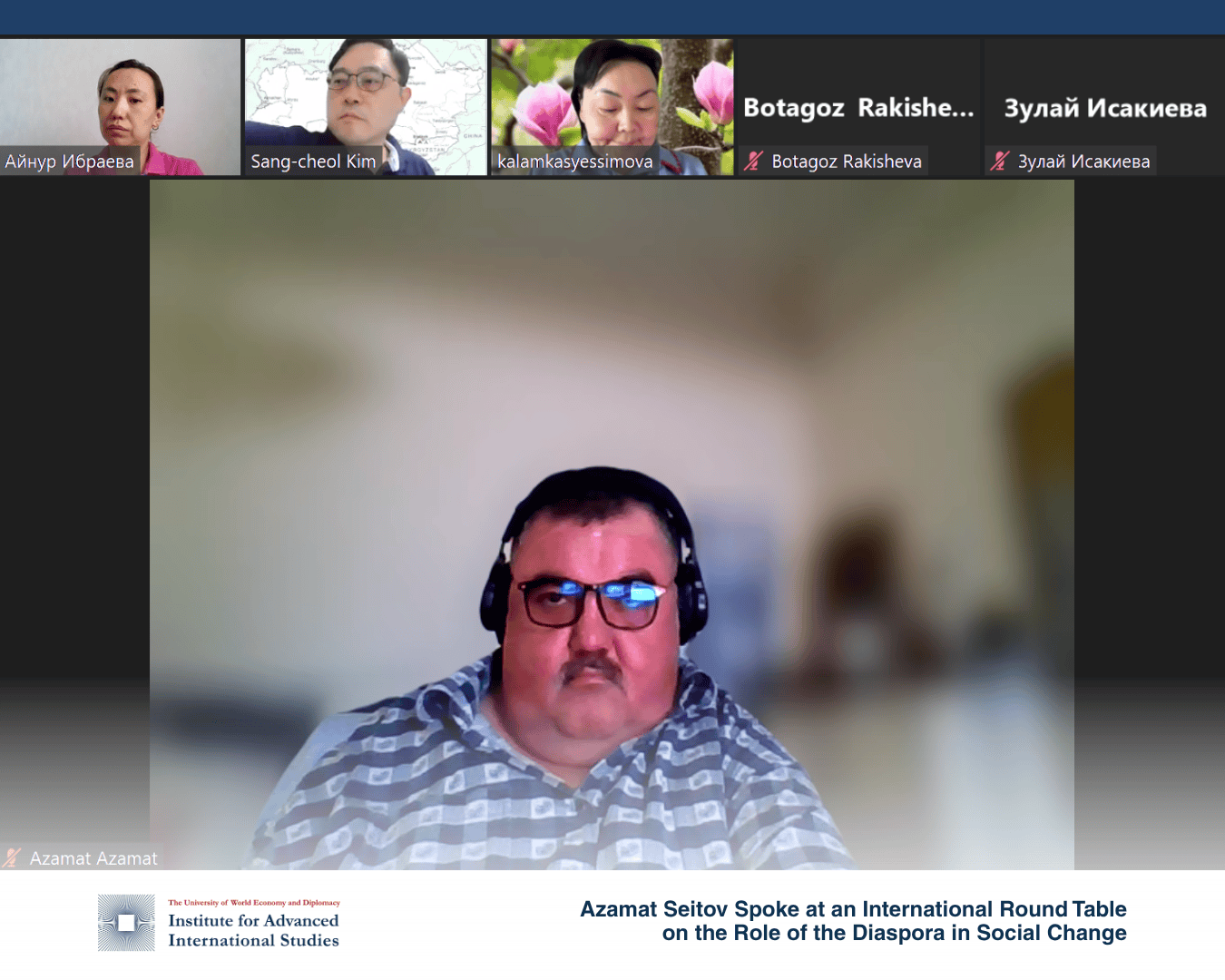
On 2 July, Professor Azamat Seitov, Head of the Laboratory for Anthropology and Conflict Studies at IAIS, took part in the 10th International Round Table on The Mediating Functions of the Diaspora: Between the Real and Historical Homeland. The event was held in a hybrid format and was organized by the Institute of Asian Studies at Al-Farabi Kazakh National University, the Otandastar Foundation, and the Public Opinion Research Institute.
In his report, Professor Seitov presented a comprehensive analysis of the phenomenon of the Uzbek diaspora as an important factor in social change and transnational interaction. He emphasized that in the context of accelerating globalization, the Uzbek diaspora is ceasing to be a passive legacy of past migration waves and is becoming an active participant in the social, cultural and economic development of both its country of residence and Uzbekistan as its country of origin. According to him, there are currently more than 5.5 million Uzbeks living abroad, and this figure could exceed 7 million by 2030.
Special attention was paid in the speech to the transcultural identity of the diaspora, its ability to preserve its native language, customs and traditions while adapting to new living conditions. Professor Seitov highlighted the role of the second generation of migrants, using the example of the Uzbek community in South Korea to demonstrate how modern diasporas form synthetic models of identity, combining national identity with a high degree of integration into the global world.
Professor Seitov concluded his speech by emphasizing the need for a strategic approach to the diaspora as a resource for development. He noted Uzbekistan's efforts to establish cultural and educational centers abroad, support young scientists and stimulate the reverse transfer of knowledge and innovation. In his opinion, it is precisely this approach — not as capital flight, but as capital expansion — that holds the true potential of the diaspora of the future.